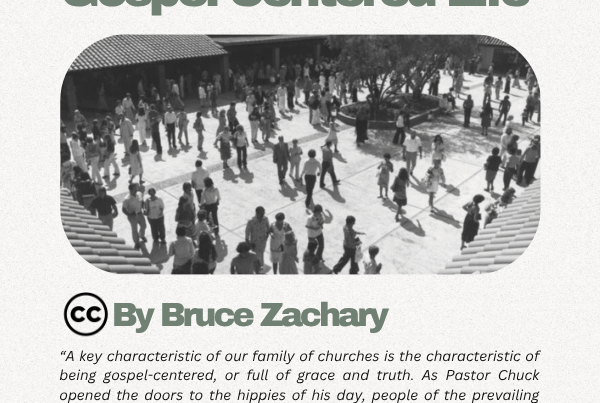
There is no doubt 2017 will go down as one of the most politically charged years in history. A concerning observation is the number of Christians worried and worked up over politics. It begs the question, whom or what are they worshiping?
As I pondered this issue, the wise men came to mind. Nearly two years had passed since Jesus was born, and Herod the Great was in power. Herod was a political tyrant. He increased taxes. He enforced harsh labor from the Israelites. He issued a decree to have all children under the age of two be put to death.
It was in the midst of this political crisis when the wise men traveled across the continent to Jerusalem. Their only aim: “Where is He who has been born King of the Jews? For we have seen His star in the East and have come to worship” (Matthew 2:2).
The wise men were not kings. They were known as Magi, a combination of wise men and priests likely from Persia.
They had political and religious influence and were figures of some province in their land.
What made the wise men wise? Their elite education, or their humble quest to seek the true King and His star in the East?
How they came to connect the birth of Jesus with the star is a matter of conjecture. Some scholars believe they were responding to a piece of scripture left to them by God’s prophets centuries before. The content of this scripture is unknown. But they were compelled to cross the continent at all costs to worship their King.
The Greek word for worship is proskuneo. It is used 61 times in the New Testament. Among the people of that day, especially Persians, the word described a person who would fall on their knees, forehead to the ground, as an expression of profound reverence.
Such reverence for scripture gave the wise men a spiritual revelation. It appears it was only the wise men who saw the star. Herod didn’t see it. The chief priests and scribes didn’t either. Only the wise men could see and were led to the holy Child.
“When they saw the star, they rejoiced with exceedingly great joy. And when they had come into the house, they saw the young Child with Mary His mother, and fell down and worshipped Him. And when they had opened their treasures, they presented gifts to Him: gold, frankincense, and myrrh” (Matthew 2:10-11).
Reverence for scripture, spiritual revelation, true worship, there is a correlation here.
Worship is singing praise songs before the pastor speaks. If we think it is merely that, we are entirely wrong.
We don’t know if the wise men entered the house of God singing songs. What’s sure is they fell on their knees and presented their gifts. They came to worship Him, and worship they did.
A great explanation of worship is this: Worship is the art of losing self in the adoration of another. Praise is a part of worship, but worship goes beyond praise alone. Praise is easy. Worship is not. Worship cuts to the heart of who we are. To worship God, we cannot worship selves. We must be willing to be humble before God, to surrender every part of our lives to His control. We adore Him for who He is, not just what He has done. Worship is a lifestyle, not an activity or occasion. “For God is Spirit, so those who worship him must worship in spirit and in truth” (John 4:23). This is the explanation from Jesus.
Paul explained worship in this way:
“I beseech you therefore, brethren, by the mercies of God that you present your bodies a living sacrifice, holy, acceptable to God, which is your reasonable service. And do not be conformed to this world, but be transformed by the renewing of your mind, that you may prove what is that good and acceptable and perfect will of God” (Romans 12:1-2).
True worship is when worshipers “present” their bodies and minds to serve God.
The word service in the Greek is latreia and is also translated worship. It is used 21 times in the New Testament, expressing the reverence and adoration of God that leads to serving Him.
Before it appears in Romans 12, the word transform is used three times in the New Testament. Two of these instances are in both accounts of Jesus’ transfiguration. Peter, James and John followed Jesus up to a high mountain where Jesus was transfigured before them. “His face shone like the sun, and His clothes became white as the light” (Matthew 17:2).
The transfiguration of Jesus is an example of what happens to us when we are transformed by God. The process begins within and works from there out. The changes God makes in our hearts and in our souls become visible in our outward selves. The only way to meet the challenges of changing our carnal minds is to truly worship God. For an example of how it’s done, follow the wise men’s lead.
The political problems for 2018 are uncertain. If we choose wisdom’s path -reverence for scripture, spiritual revelation, true worship – God will meet us there. He will transform us into the image of His Son. For peace and all you need, seek and worship Him.









